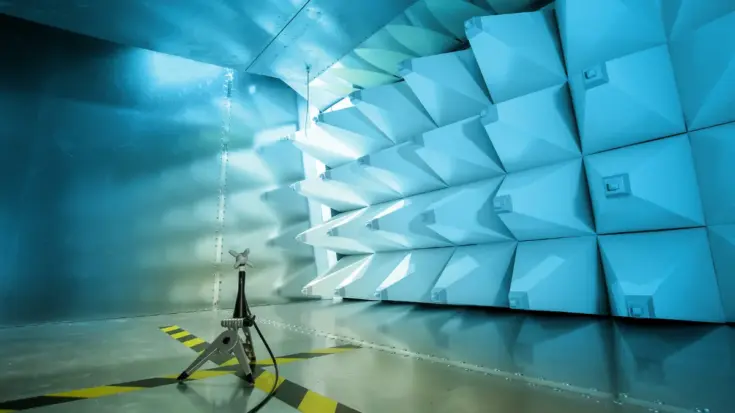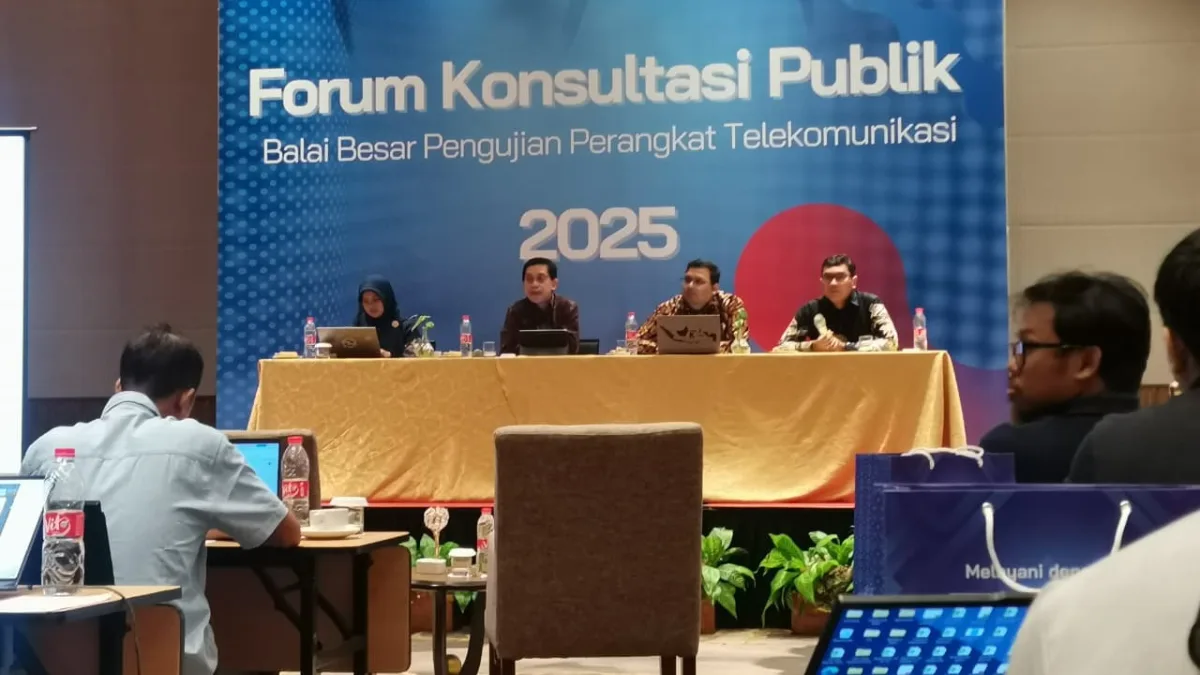Thursday, September 11, 2025, the Telecommunications Equipment Testing Center (BBPPT) held a Public Consultation Forum to present one of their agendas regarding Changes to the Implementation Guidelines for Telecommunications Equipment Testing as stipulated in Decree 36 of 2024.
At the forum, held at the Grand Travello Hotel in Bekasi, BBPPT invited the Indonesia Digital Test House (IDTH) team to explain the planned changes to the Implementation Guidelines for Telecommunications Equipment Testing in the equipment testing process, ranging from service types, administrative procedures, costs, to new provisions regarding Test Result Reports (LHU).
The main objective of the planned changes to the Implementation Guidelines for Telecommunications Equipment Testing is to provide legal certainty, accelerate services, and adapt the testing system to technological developments and industry needs for the Directorate General of Digital Infrastructure (DJID) certification.
Plan for Changes to the Implementation Guidelines for Telecommunications Equipment Testing
Types of testing

Decree 36/2024
Previously, device testing was divided into two methods:
- Laboratory testing
- Field testing
Planned Changes
The classification is further detailed as follows:
- Regular laboratory testing: Follows the normal queue according to schedule.
- VIP laboratory testing: A Special service that is processed immediately without queuing.
- Field testing: Conducted directly in the field for certain devices.
Applicant identity
Decree 36/2024
- Based on PLG-ID
- Requires the OSS process first
- Only for one user account
Change Plan
Company
- Based on the NIB (Business Identification Number)
- Has user account management
Individual
- Based on NIK
Test documents and requirements

Decree 36/2024
- Test items and supporting equipment
- Technical documents, including:
- Equipment specifications
- Photos of test items
- Technical declarations
- Manuals (optional)
- Operating instructions/test mode (optional)
Change Plan
- Test items and supporting equipment
- Technical documents, including:
- Equipment specifications
- Photos of test items
- Manual (optional)
- Operating instructions (optional)
Testing costs
Decree 36/2024
Testing fees refer to PP No. 43 of 2023 concerning Types and Rates of PNBP at KOMINFO/KOMDIGI.
Planned Changes
The tariff regulation revision process is currently underway.
- Testing fees can be waived up to IDR 0 under certain conditions.
- The provisions for resolving PNBP payment errors remain in accordance with PMK 206/2021
For field testing, accommodation costs have also changed. Previously, the PMK cost standard was used, but now it is based on actual costs (at cost). Any excess costs will be refunded, while any shortfall will be billed to the applicant.
Test results report

Decree 36/2024
- LHU is published in 1 document for all features
Change Plan
- LHU is published based on testing feature groups, namely:
- Radio frequency
- Non-radio interface
- Electromagnetic compatibility
- Electrical safety
- Specific absorption rate
- Laser safety
LHU amendment provisions
Decree 36/2024
There are no provisions regarding LHU amendments
Planned Changes
In changes to the implementation guidelines, amendments can now be made provided there is valid supporting data. Amendments can be submitted for the following matters:
- Changes to the LHU holder’s address
- Changes to the device name
- Changes to the device brand and type
- Changes to the country of manufacture
Test sample management

Decree 36/2024
Samples that exceed 10 working days are no longer the responsibility of BBPPT.
Revised Plan
The provisions remain the same, but it is emphasized that samples that are not collected may be destroyed.
The Public Consultation Forum held by BBPPT regarding the Changes to the Implementation Guidelines for Telecommunications Equipment Testing marks an important step in improving the quality and efficiency of testing in Indonesia for DJID certification.
The changes listed in Decree 36/2024 are expected to make the testing process more flexible, transparent, and adaptive to the ever-evolving needs of the industry.

